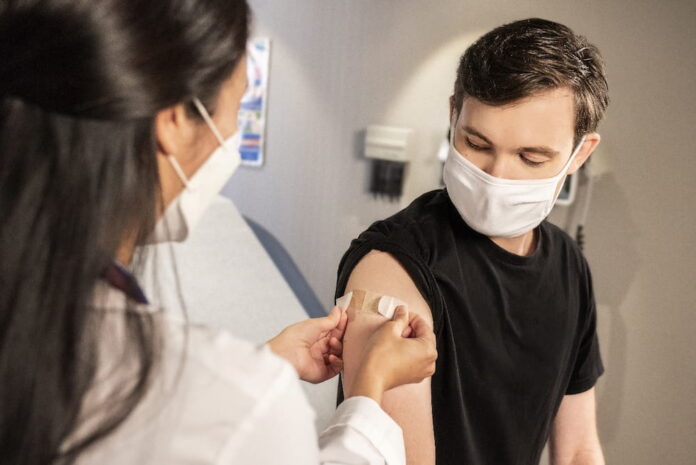When it comes to handling health information, you need to be especially careful. The Health Insurance Portability and Accountability Act was designed with this in mind. It’s one of the reasons why nurses have a reputation as some of the best professionals when it comes to protecting patient information. But there are many things that even experienced healthcare professionals don’t know about HIPAA compliance and how it can affect them.
In this article, we’ll cover five tips about HIPAA compliance and uncover what you need to know if you’re a nurse who wants to ensure their patients’ medical records are protected at all times. You can also use the HIPAA compliance checklist pdf for a quick reference of all the things you need to consider when it comes to protecting patient information. Here are the top tips on HIPAA compliance for nurses.
Understanding What Constitutes PHI:
Knowing the definition of PHI is a good place to start when it comes to understanding what constitutes protected health information (PHI). According to the U.S. Department of Health and Human Services Office for Civil Rights, “protected health information” is individually identifiable health information that has been created or received by a HIPAA-covered entity (like your hospital) and that relates to your past, present, or future physical or mental health or condition; the provision of health care to you by a HIPAA covered entity; or your past, present, or future payment for the provision of health care to you by a HIPAA covered entity.
Your medical records should always be treated as confidential data and not shared with any non-employees without written consent from you. Be sure that only authorized personnel access these records and that they are stored in accordance with industry standards for security measures and disposal practices.
Securing Electronic Devices:
The most important tip is to secure your electronic devices. Whether you’re using a laptop, tablet, or smartphone – if it holds sensitive data, you must protect it.
– Use a password manager such as LastPass or 1Password. Don’t use the same password for multiple accounts, and don’t share your passwords with anyone.
– Don’t leave your devices unattended so someone can access them while they are not being used by you – especially when they contain protected health information (PHI). If you must leave your device somewhere while working or out in public, make sure that it is locked with a passcode/password before putting it away so no one can access it without permission from you first!
– Avoid using public computers or public WiFi hotspots like at Starbucks, where anyone could potentially monitor traffic going through these networks (both wired and wireless connections) which could lead to breaches of privacy laws regarding user data content, including PHI itself – especially if someone has installed malware on those machines beforehand!
This means making sure that all network connections are secure before logging into any sensitive websites, such as those containing PHI records held within databases belonging to privately owned systems like those maintained by healthcare organizations.
Reporting The Inappropriate Disclosures:
As you may have noticed, the main point of compliance is to protect patient privacy. However, one of the hardest parts about complying with HIPAA is knowing when and how to report a breach of protected health information (PHI).
In order for organizations like yours to be compliant with HIPAA, it’s important that you know what constitutes a breach of PHI.
Once you figure out whether or not there has been an incident that warrants reporting, go ahead and report it! Reporting will help inform your organization about where they need improvement—and also prevent negative consequences from harming patients in future incidents.
Know About PHI Disposal Methods In Detail:
It is important to know about PHI disposal methods in detail because it will help you understand what needs to be done when removing electronic records, paper records, and other types of information.
Having a disposal policy in place ensures that employees adhere to the standards and protocols when disposing of patient information.
You can dispose of PHI by shredding, burning, or pulverizing it. However, the most effective method is to shred or burn the documents so that they cannot be reconstructed into readable form by unauthorized individuals.
If your organization does not have any specific policies related to how much PHI should be shredded at any given time, then your only option is to use an “all-at-once” approach where all documents are shredded simultaneously without being sorted out beforehand based on their sensitivity level which may lead towards noncompliance issues due lackadaisical attitude towards data security measures for sensitive information stored at workplace premises such as health care providers’ offices.
Protecting Your Password or Login Details.
Do not share your passwords with anyone, ever. This is a big one: if you share your password with someone and they use it to log into an account on your behalf, then anyone who knows that password can also impersonate you and access that account.
It’s much easier than you might think for someone else who knows about this relationship to get hold of the information needed to access accounts under your name.
Use unique, strong passwords for every account that requires internet access or personal information (i.e., email addresses).

Change them often! If hackers have used one compromised account as part of an attack on another system (such as getting access through social engineering), changing the password regularly can prevent them from accessing anything else while they’re still trying out old credentials in new places–and it’ll make sure that any damage done cannot be easily repaired once discovered either!
HIPAA Compliance is an important part of every nurse’s day-to-day routine.
HIPAA Compliance is an important part of every nurse’s day-to-day routine. It’s something you’ve been doing since your first day in school, and it’s something that has only become more essential as technology has made it easier for nurses to transmit information digitally.
The good news is that there are steps you can take to make sure HIPAA Compliance compliance is part of your daily routine without being a burden on yourself or others. This article has outlined the top five tips for making sure that HIPAA compliance becomes second nature for all nurses.
Final Thoughts
It’s important to remember that HIPAA compliance isn’t just a matter of following the rules. It’s also a good way to protect yourself and your patient’s privacy, as well as cut down on any unnecessary stress or anxiety. By following these tips every day, you will be able to keep your practice safe and secure while still enjoying yourself!
Read Also
- How to Drive Growth Through Customer Centricity in HealthcareThe world of healthcare is changing in big ways. Consumers are now stepping up and taking charge of their health journeys. This change is happening now for important reasons. The U.S. health and wellness market is huge, projected to be over $6 trillion in 2025. This growth is fueled by rising out-of-pocket costs and more… Read more: How to Drive Growth Through Customer Centricity in Healthcare
- Maximizing Digital Reach for Podiatry Clinics in Local HealthcareMaximizing Digital Reach for Podiatry Clinics in Local Healthcare As the healthcare industry evolves, mobile marketing becomes indispensable for practitioners. Podiatry clinics, focusing on foot and ankle care, must adapt to digital strategies to engage patients effectively. Implementing tailored SEO practices is crucial for these clinics to thrive in an increasingly competitive market. Digital marketing… Read more: Maximizing Digital Reach for Podiatry Clinics in Local Healthcare
- Leveraging Virtual Medical Assistants to Maximize Operational Efficiency in HealthcareIn the increasingly complex and fast-paced world of healthcare, operational efficiency is critical. Doctors and healthcare administrators are faced with numerous challenges, from managing patient scheduling and medical billing to adhering to stringent regulatory compliance and insurance claims processing. These tasks, while essential, often divert time and resources away from the core mission of providing… Read more: Leveraging Virtual Medical Assistants to Maximize Operational Efficiency in Healthcare
- Optimizing CT Protocols: The Hidden Key to Efficiency and Cost Savings in RadiologyIntroduction: Why CT Protocol Optimization Matters Computed Tomography (CT) is a cornerstone of modern diagnostic imaging, providing critical information across nearly every medical specialty. However, maximizing the value of CT — both clinically and financially — requires more than just advanced hardware. The real secret lies in the optimization of CT protocols. When CT protocols… Read more: Optimizing CT Protocols: The Hidden Key to Efficiency and Cost Savings in Radiology
- Hospital Discharge Accuracy Improves With Daily Advisor InvolvementThe hospital discharge process has a big effect on patient recovery, hospital efficiency, and finances. It requires careful planning and clear communication between team members to make sure patients get the right care when they leave the hospital. Having physician advisors involved at this stage can improve the discharge process by spotting problems that need… Read more: Hospital Discharge Accuracy Improves With Daily Advisor Involvement
- Understanding Clinical Trials: What to Learn and the RoadblocksClinical trials are research studies conducted to determine the efficacy of medical, surgical or behavioral interventions. They are the most commonly used way that researchers assess whether new treatments, drugs or medical devices are safe and effective for use in humans. There are strict protocols governing these studies, and all of this is done in such a… Read more: Understanding Clinical Trials: What to Learn and the Roadblocks







